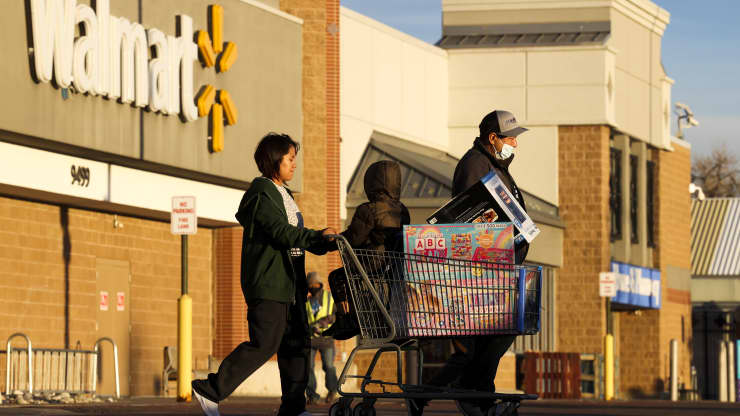
By Lindsay Dunsmuir and Nandita Bose
WASHINGTON (Reuters) – With panic buying on Main Street and fear-driven sell-offs on Wall Street, the U.S. Federal Reserve cut interest rates to near zero on Sunday in another emergency move to help shore up the U.S. economy amid the rapidly escalating coronavirus pandemic.
The mayors of New York City and Los Angeles ordered restaurants, bars and cafes closed, with takeout and delivery the only options for food sales. Movie theaters, small theater houses and concert venues were also ordered closed as the U.S. death toll from the outbreak hit 65.
“The virus can spread rapidly through the close interactions New Yorkers have in restaurants, bars and places where we sit close together,” said New York Mayor Bill de Blasio. “We have to break that cycle.”
For the second time since the financial crisis of 2008, the Fed cut rates at an emergency meeting, aiming for a target range of 0% to 0.25% to help put a floor under a rapidly disintegrating global economy.
U.S. President Donald Trump, who had openly pressed the Fed for further action, called the move “terrific” and “very good news.”
Store shelves have been stripped bare of essentials, schools closed and millions of jobs in jeopardy as businesses temporarily shut their doors.
“We’re learning from watching other countries,” Trump said. “It’s a very contagious virus … but it’s something that we have tremendous control of.”
Trump has faced criticism at home and abroad for sometimes downplaying the seriousness of the coronavirus and overstating his administration’s ability to handle it.
Dr. Anthony Fauci, the nation’s top infectious diseases expert, said the United States was entering a new phase of coronavirus testing but tempered the president’s optimism.
“The worst is yet ahead for us,” Fauci said, a warning he has issued frequently in the past week. “It is how we respond to that challenge that is going to what the ultimate end point is going to be.”
U.S. Vice President Mike Pence said testing for coronavirus was expanding with more than 2,000 labs across the country ready to process tests and 10 states operating drive-through testing.
The United States has lagged behind other industrialized nations in its ability to test for the coronavirus. In early March, the Trump administration said close to 1 million coronavirus tests would soon be available and anyone who needed a test would get one, a promise it failed to keep.
With limited testing available, U.S. officials have recorded nearly 3,000 cases and 65 deaths, up from 58 on Saturday. Globally more than 162,000 are infected and over 6,000 have died.
The U.S. Centers for Disease Control on Sunday recommended that events with gatherings of 50 or more people over the next eight weeks be postponed or canceled.
DON’T HOARD
The White House appealed to Americans not to hoard as the coronavirus spreads, reassuring them that grocery supply chains were strong.
Trump held a phone call on Sunday with 30 executives from grocery stores including Amazon.com Inc’s <AMZN.O> Whole Foods, Target Corp <TGT.N>, Costco Wholesale Corp <COST.O> and Walmart Inc <WMT.N>, the White House said.
“Have a nice dinner, relax because there’s plenty, but you don’t have to … you don’t have to buy the quantities,” Trump said. “We’re doing really, really well. A lot of good things are going to happen.”
Trump tested negative for coronavirus, his doctors said on Saturday, as the president extended a travel ban to Britain and Ireland to try to slow the pandemic.
Trump’s spokesman, Judd Deere, said temperature checks will be conducted on everyone who enters the White House grounds, beginning Monday morning.
Travelers returning to the United States and being screened for the coronavirus were met by long lines and massive delays at some major airports, prompting federal officials to deploy more staff and Trump to appeal for patience.
Joe Biden and Bernie Sanders, squaring off in a Democratic debate, blasted Trump’s handling of the coronavirus and touted their own plans to deal with it.
In their first one-on-one debate, the two Democratic contenders to face Trump in the November election said the Republican president had contributed to worries about the pandemic by minimizing the threat before declaring a national emergency on Friday.
CLOSURES EXPAND
The U.S. containment measures have so far been mild compared to the nationwide lockdowns imposed in Italy, France and Spain.
“I think Americans should be prepared that they are going to have to hunker down significantly more than we as a country are doing,” Fauci said on NBC’s “Meet the Press.”
Even though Americans are not barred from going to the movies, ticket sales in North America fell to their lowest level in more than two decades this weekend, according to measurement firm Comscore.
Democratic New York State Governor Andrew Cuomo announced that schools in New York City, Westchester, Nassau and Suffolk counties would close from Monday, and he called on Trump to mobilize the Army Corps of Engineers to create more hospital beds.
Cuomo had been criticized for not closing schools as other states have done, given that New York has a large cluster of coronavirus cases.
A clinical trial to evaluate a vaccine designed to protect against coronavirus will begin on Monday, the Associated Press reported, citing an unnamed U.S. government official.
It would take a year to 18 months to fully validate any potential vaccine, the AP added, citing public health officials.
(For an interactive graphic tracking global spread of coronavirus, open https://tmsnrt.rs/3aIRuz7 in an external browser.)
(Reporting by Doina Chiacu, Lindsay Dunsmuir, Andrea Shalal, Nandita Bose, Matt Spetalnick, Humeyra Pamuk, John Whitesides, Steve Holland in Washington; Writing by Lisa Shumaker and Matt Spetalnick; Editing by Daniel Wallis, Diane Craft, Lincoln Feast and Gerry Doyle.)






